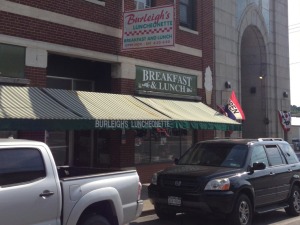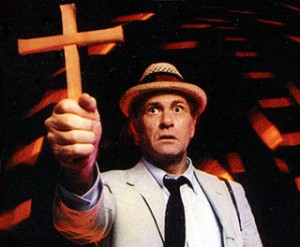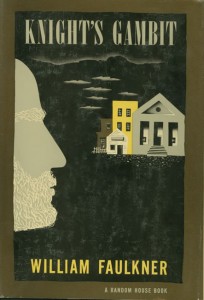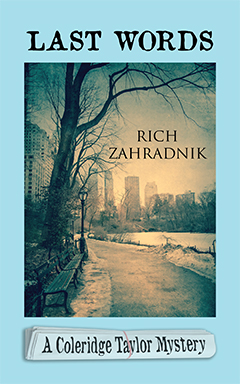 I thought seeing the cover for LAST WORDS was the most exciting thing to happen to me since starting my novel writing journey. But… seeing that cover on the Amazon pre-order page that popped up yesterday topped everything. You can visit the pre-order page by clicking this link. Right now, you can order the trade paperback. I will post when the page for Kindle orders goes up.
I thought seeing the cover for LAST WORDS was the most exciting thing to happen to me since starting my novel writing journey. But… seeing that cover on the Amazon pre-order page that popped up yesterday topped everything. You can visit the pre-order page by clicking this link. Right now, you can order the trade paperback. I will post when the page for Kindle orders goes up.
Here’s the news release Camel Press is putting out this week:
Camel Press Announces the October Release of Last Words: New York City on the Brink in 1975
Seattle, WA—On October 1, 2014, Camel Press will release Last Words ($13.95, 248 pages, ISBN: 978-1-60381-207-8), by debut author Rich Zahradnik, book one of a new hardboiled detective series featuring newsman Coleridge Taylor. In Last Words Taylor struggles to keep his job and repair his tarnished reputation as he pursues a story about a dead teenager. The series is set on the mean streets of Manhattan and the surrounding boroughs in 1975.
In March of 1975, as New York City hurtles toward bankruptcy and the Bronx burns, newsman Coleridge Taylor roams police precincts and ERs. He is looking for the story that will deliver him from obits, his place of exile at the Messenger-Telegram. Ever since he was demoted from the police beat for inventing sources, the 34-year-old has been a lost soul.
A break comes at Bellevue, where Taylor views the body of a homeless teen picked up in the Meatpacking District. Taylor smells a rat: the dead boy looks too clean, and he’s wearing a distinctive Army field jacket. A little digging reveals that the jacket belonged to a hobo named Mark Voichek and that the teen was a spoiled society kid up to no good, the son of a city official.
Taylor’s efforts to protect Voichek put him on the hit list of three goons who are willing to kill any number of street people to cover tracks that just might lead to City Hall. Taylor has only one ally in the newsroom, young and lovely reporter Laura Wheeler. Time is not on his side. If he doesn’t wrap this story up soon, he’ll be back on the obits page—as a headline, not a byline.
Says Zahradnik, “The year 1975 and the city of New York intrigued me because of the very striking parallels to America today. Then as now, an unpopular war was finally coming to its sad end. A major institution, the city itself, tumbled toward bankruptcy, threatening a cataclysm on the entire financial system. This as banks and ratings agencies ignored the warning signs or willfully misled the public. I chose this time period for the differences as well as the similarities. Solving a mystery in 1975 required good old fashioned legwork and serious brainwork, rather than science fiction-like instant DNA typing and surveillance video available from any and every angle. Taylor has to find a pay phone when he needs to call someone. There’s something satisfying in that for me.”
Rich Zahradnik has been a journalist for 30-plus years, working as a reporter and editor in all major news media, including online, newspaper, broadcast, magazine, and wire services. He lives with his wife, Sheri, and son, Patrick, in Pelham, New York, where he teaches elementary school kids how to publish online and print newspapers. For more information, go to www.richzahradnik.com.
Last Words is currently available for pre-order on Amazon.com. After October 1, it will also be for sale in both eBook and 5×8 trade paperback editions on BN.com, the European Amazons, Amazon Japan and select independent bookstores. Bookstores and libraries will be able to order wholesale through Ingram, Baker & Taylor, Partners West, or by contacting info@camelpress.com. Libraries can also order from Follett Library Resources or Midwest Library Service. Other electronic versions will be available on Smashwords, BN.com, or at any of the major online eBook stores.
ABOUT Camel Press—Based in Seattle Washington, Camel Press is a new imprint owned by Coffeetown Press. Camel Press publishes genre fiction: romance, mystery/suspense, science fiction, horror … or any combination thereof. We publish the books that grab you and hold you in their grip long into the night.
CONTACT:
Catherine Treadgold
Publisher
Camel Press
P.O. Box 70515
Seattle, WA 98127
www.camelpress.com
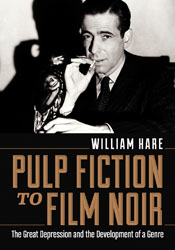 I first discovered McFarland & Co. Publishers many years ago when I bought the book Unsold Television Pilots 1955-1988 by
I first discovered McFarland & Co. Publishers many years ago when I bought the book Unsold Television Pilots 1955-1988 by 